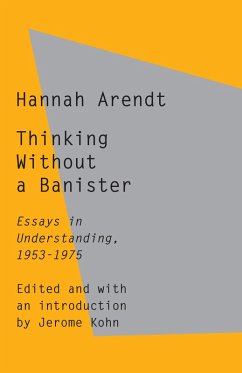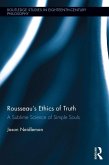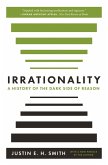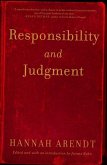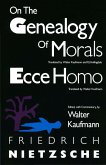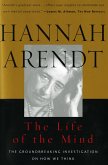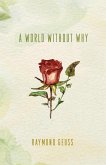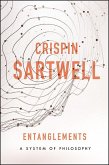Hannah Arendt was born in Germany in 1906 and lived in America from 1941 until her death in 1975. Thus her life spanned the tumultuous years of the twentieth century, as did her thought. She did not consider herself a philosopher, though she studied and maintained close relationships with two great philosophers-Karl Jaspers and Martin Heidegger-throughout their lives. She was a thinker, in search not of metaphysical truth but of the meaning of appearances and events. She was a questioner rather than an answerer, and she wrote what she thought, principally to encourage others to think for themselves. Fearless of the consequences of thinking, Arendt found courage woven in each and every strand of human freedom. In 1951 she published The Origins of Totalitarianism, in 1958 The Human Condition, in 1961 Between Past and Future, in 1963 On Revolution and Eichmann in Jerusalem, in 1968 Men in Dark Times, in 1970 On Violence, in 1972 Crises of the Republic, and in 1978, posthumously, The Life of the Mind. Starting at the turn of the twenty-first century, Schocken Books has published a series of collections of Arendt's unpublished and uncollected writings, of which Thinking Without a Banister is the fifth volume. The title refers to Arendt's description of her experience of thinking, an activity she indulged without any of the traditional religious, moral, political, or philosophic pillars of support. The book's contents are varied: the essays, lectures, reviews, interviews, speeches, and editorials, taken together, manifest the relentless activity of her mind as well as her character, acquainting the reader with the person Arendt was, and who has hardly yet been appreciated or understood. (Edited and with an introduction by Jerome Kohn)
Dieser Download kann aus rechtlichen Gründen nur mit Rechnungsadresse in A, B, BG, CZ, D, DK, EW, E, FIN, F, GR, HR, H, I, LT, L, LR, NL, PL, P, R, S, SLO, SK ausgeliefert werden.

